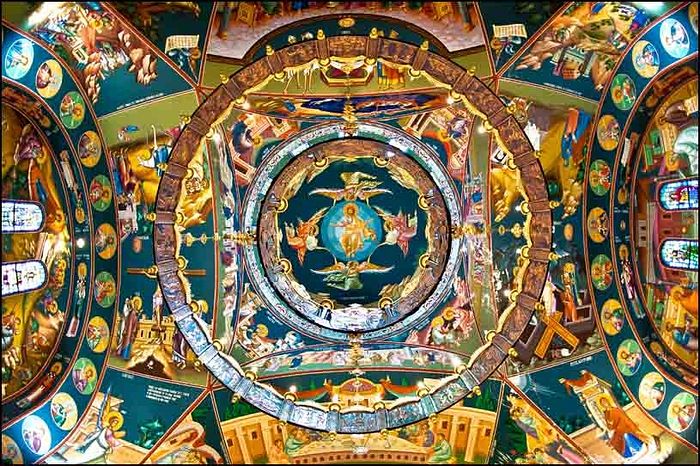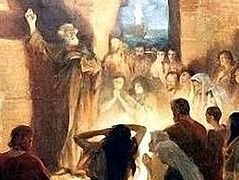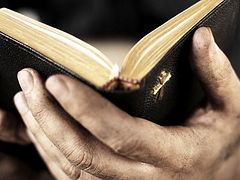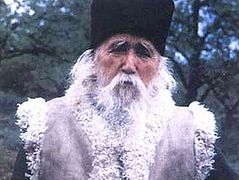In these past weeks, Orthodox Christians around the world have been observing an annual celebration of the Holy Fathers of Nicea—bishops from across the Roman Empire and beyond who gathered in 325 A.D. to deal with the heresy of Arius, an Egyptian priest who denied that Christ was divine with the same divinity as God the Father.
This may sound like ancient, boring history to some, but Orthodoxy's continued fidelity to the faith of Nicea actually has tremendous, contemporary witness in terms of how sharply it contrasts with the ecclesiological progressivism of our age. Orthodoxy has become counter cultural by remaining traditional.
Orthodox see their vocation not as innovation, but preservation. As St. Athanasios (293-373) wrote, "What the Logos (Christ) gave, the apostles preached, and the Fathers preserved." We preserve the ancient faith of Nicea without trying to improve on it, because perfection cannot be improved upon.
Contrast this with ecclesiological progressivism—the idea that as time passes and humanity becomes wiser and more enlightened, we can and should improve the Church's doctrine and worship; that we're charged with making the Church better, more itself, by casting aside obsolete moral codes or ancient liturgical rites.
I often heard said at my mainline Protestant university that, "We don't just believe in a reformed Church, but a reforming one"—meaning a church in the constant process of trying to "find itself." A church with an identity crisis.
Orthodoxy must seem rather boring by contrast, or perhaps irritatingly stubborn. In the backward Christian East, we say we need reforming, not the Church. We don't save it, it saves us. We also don't believe newer necessarily means better. Or, we don't misquote Christ as saying, "I make all new things," when He really says, "I make all things new."
And that's the challenge for Christians of a traditional, apostolic orientation: not to get locked into stale, outmoded means of communicating eternal truths, but to always be working to unfold ancient wisdom in new and challenging ways.
Yet as ecclesiological progressivism becomes more institutionalized, I'm finding more people attracted to a Church that knows what it believes, and a worship that's not about entertaining me. Tradition is gaining appeal among those tired of being experimented on and marketed to.
What's old is fresh. This takes humility to discern. You must look at the Mona Lisa and not say, "That painting is so old. Let me redo it my way."
Respect for ancient things also requires respect for the people who made them—like the fathers of Nicea.
G.K. Chesterton said, "Tradition means giving a vote to the most obscure of all classes, our ancestors. It is the democracy of the dead." I'd nuance that by reminding Chesterton (who is dead) that our God isn't the God of the dead, but the living. In Orthodoxy, tradition is the democracy of the saints. Or better yet, their benevolent dictatorship.




